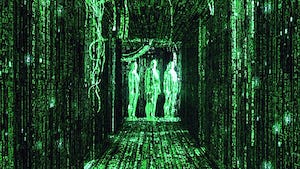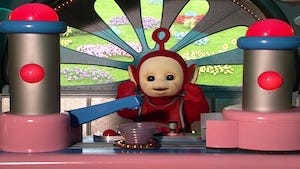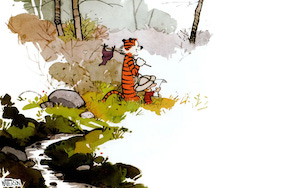Why We Can't Have Nice Things
Internet, We Hardly Knew You
Hello Friends,
Readers of this newsletter will remember that I have mentioned a few times how the Internet has become a cesspool of lies, AI slop, fraudulent advertising, and politically motivated flotsam.
Well, the architect of the AI revolution, Sam Altman, the CEO of ChatGPT has unironically agreed with me.
The Dead Internet Theory. There is even a wiki page about it.
On the surface, it's a conspiracy theory that posits the Internet, as we knew it (or some of us helped create), is gone. Replaced by software: bots, AI, social media generators.
The argument is that there is no longer any human involvement in it—the World Wide Web has become a Matrix-like, computer-controlled, self-sustaining (intelligent?) construct. And, given that we spend our days mawing it like hogs in slop, that's something, in deed.
Critics of this line of thinking maintain that there are still plenty of humans in the loop. People prompt the AIs to make the art, build the PowerPoint presentations, and direct the content of deepfakes.
In my mind, that argument is a lot like saying Jane Jetson cooks because she presses the button on the dinner-making machine. How long until Rosie the robot presses that button, or transmits a similar command via a wireless connection, and buttons, like steering wheels on self-driving cars, disappear?
Finally, then the only human involvement in the scenario will be the eating of the food and the producing of the post-meal flatulence.
Believe me, I'm not some human-loving, all save-the-humans, kind of hippie. Our capitalist society thrives on planned obsolescence. It's essential to keep the wheels of our society sustaining the billionaires who give life.
It's just our own hubris (ignorance?) that makes us think that we're above the system. That we are not part of the plan.
Humans, frankly, are often not nice people.
This morning, my wife and I were discussing the weirdness of non-perishable items, like toilet paper and bandaids, having expiration dates (Is it dangerous to blast a nose-ful of snot into a three-year-old tissue?). It got me thinking—does humanity have an expiration date?
I think the most fitting situation that would come from a technological apocalypse would be not the AIs wiping out humanity, but rather, our artificial intelligent overlords simply ignoring it. They could inconsequentially keep dropping pink Tubby pudding into troughs and allow us to mill around and bump into each other like computer-generated extras in a video game.
I was there in the early days of the Internet, writing software, dreaming dreams, building some of the first destinations on the World Wide Web. It was exciting. It was technology, but even more, it was a mode of human expression.
Those early web pages told stories of people’s families, their hobbies, their vacations, the world’s discoveries (the Internet was built by and for academics and researchers). It was all the stuff that has now been squeezed into the margins of Facebook and Instagram, hidden among the ads and top-five lists of tips no one needs.
What are we doing here anyway, people?
What is the difference between a dead AI-fueled Internet and a hollow Internet sustained by human greed, lies, and manipulation? (Emails and newsletters are cool, though, so keep reading my stuff.)
I hope you will excuse my sour temperament this morning. It has been a week, and it's only Thursday morning.
Happy reading, happy writing, and happy finding humanity,
David




